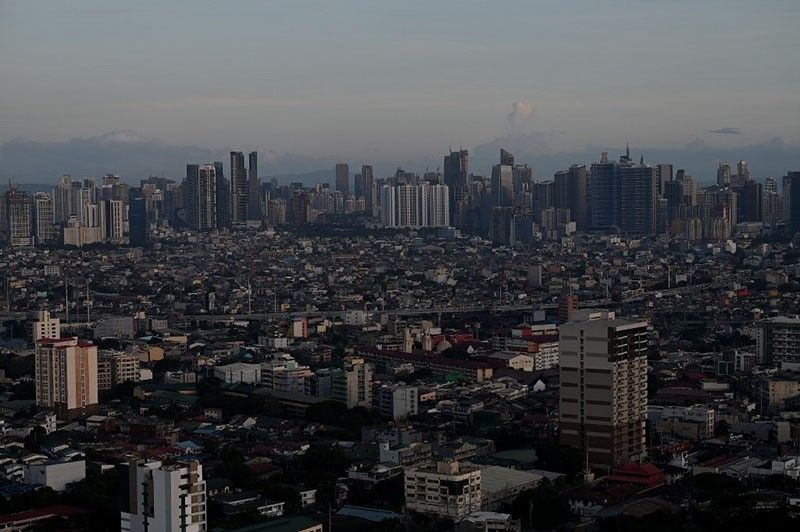Bridging sustainability gaps with private sector ESG

As the year ends, new sustainability and environmental commitments for the coming year 2023 emerge.
We are left to ask: Will these even amount to anything more than just feel-good pledges? Can humanity’s commitments make a real and tangible dent in the hastening warming of the planet and increasing climate-induced risks? How can we make sure this year’s talks would be more decisive than the previous years?
The push for sustainability does not begin and end with just the yearly environmental pledges. They need concrete collective actions anchored on inclusive and equitable economic development, sustainable, holistic, and practical solutions, and changes in our unsustainable mindset and behaviors.
We should be mindful of our long-term commitments. Doing less harm is no longer enough. We need to look into how we can factor in people’s well-being, environmental stewardship, and the promotion of green economies with every big and small economic and business decision that we make.
Global warming, sustainability, and climate resiliency have been age-old problems, yet we are still finding ways to systematically and effectively deal with them. Year after year, the global community warns Filipinos of the cost of inaction. We are reminded every day of the dangers that climate-induced risks pose especially for the most vulnerable sectors of the Filipino communities.
Unfortunately, despite having one of the smallest contributions to global greenhouse gas emissions, the Philippines is considered one of the countries most affected by climate-induced risks. The latest World Risk Index, which was jointly developed and published by the Bündnis Entwicklung Hilft, the Institute for International Law of Peace and Armed Conflict at Ruhr University Bochum, and the United Nations University Institute for Environment and Human Security, ranked the country as the no. 1 most affected by disaster risks.
According to the World Bank, about 13.6% of the country’s economic output could be lost by 2040 if the government and the private sectors fail to act on climate change impacts. To illustrate, according to the Department of Finance, last year, the Philippines already lost about P506.1 billion in economic value over the past decade only due to damages caused by climate-related hazards.
Climate change and sustainability are no longer a concern of scientists alone. Nor can it be addressed once and on a stand-alone basis. This is also why the Stratbase Albert Del Rosario Institute and the Philippine Business for Environmental Stewardship believe these issues should be front and center among Filipinos, and that everyone should think of themselves as stewards of our planet. Our efforts to deal with sustainability and environmental challenges must be in concert. More importantly, now is the time to show that environmental stewardship is not an empty phrase.
This is where the private sector comes in. In the Philippines, businesses have already reinvented themselves to better address prevailing issues such as economic growth, environmental stewardship, climate resilience, and public health.
They have also provided unsolicited assistance on all fronts, especially towards addressing issues such as public health, job security, the country’s pre-existing social inequalities, and hardships experienced by those most vulnerable. Every business sector-led initiative, that is guided by environment, social, and governance (ESG) principles, holds the promise of a more sustainable future that generates positive long-term returns, not just for businesses, but also for the economy, society, and the environment.
Department of Environment and Natural Resources Secretary Ma. Antonia Yulo-Loyzaga, during the Stratbase Albert Del Rosario Institute’s Pilipinas Conference 2022 Session 1, Panel 2 entitled “Bolstering Private Sector Initiatives: Promoting Investment-led, Sustainable, Resilient Economic Growth”, underscored that the private sector has emerged as a critical actor in bridging sustainability and climate actions and the costs attributed to them.
She added that many private companies have recalibrated their priorities to commit not only to profits to the company but to be agents of environmental conservation and champions of community progress and empowerment. Private companies’ shift towards advancing financial gains while leaving no community and no ecosystem behind, which is based on social equity and environmental sustainability, is a true manifestation of their commitment to achieving their environmental, social, governance, and resiliency (ESGR) targets.
She also called on the department to become part of the same mission and be an agent that represents ethical stewardship that works across silos to uphold shared environmental values.
This aligns with the points made by Stratbase ADR Institute Trustee and Program Convenor Carlos Primo David during the conference. According to him, the government can learn from the private sector regarding resource allocation for ESG investments, particularly on efficiency, scale, and leverage.
Private companies need to be efficient in their processes to maximize profit. This discipline also carries over to when a company invests in ESG, whose total real value grows as the company expands. Moreover, private companies that have taken on an environmental cause whether it is carbon neutrality, plastic waste reduction, or nature conservation have the advantage of influencing their partners and imposing the same ideals on their suppliers.
Stakeholders’ deep understanding of their underlying role in the climate agenda is imperative. The private sector, with its transformative powers and capabilities to accelerate progress, definitely plays a crucial role in advancing our country’s sustainable future. ESG serves as a guide for businesses in determining how to reorient resources toward long-term sustainability.
However, for this to be effective, the government must not waver in its commitment to create a business-conducive environment where private sector-led ESG and sustainability investments can thrive and be adopted at scale.
In today’s complex sustainability and climate issues, there is a need to bridge the gap between promises, policies and actions. The private sector, through its ESG initiatives, could be the primary driver of this agenda.
Engineer Felix Vitangcol is a fellow for Environment at the Stratbase ADR Institute and secretary-general of Philippine Business for Environmental Stewardship.
- Latest





























